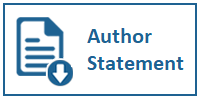Fuzzy TOPSIS Implementation for the Determination of Priority Scale in Improving Service Quality
DOI:
https://doi.org/10.31937/ti.v16i2.3564Abstract
Service quality plays a crucial role in economic development, particularly in the service industry, such as hotel services. Despite this, many hotels lack a systematic approach to help management identify areas that require improvement based on customer feedback. This research aims to develop a system that supports efforts to enhance service quality, utilizing the Fuzzy TOPSIS method. The study incorporates 150 data points obtained from questionnaires distributed to hotel service customers. The research involves two trials: service improvement priority and service eligibility. The results indicate an 84.45% accuracy level for service improvement priority testing, based on 120 out of 150 data points. Additionally, the accuracy level for service eligibility testing is 85.34%, derived from 131 data points out of the total 150. The research findings highlight the cafeteria as a significant area requiring improvement in service quality, aligning with the insights of hospitality experts. These results can serve as a foundation for management to enhance service quality based on selected criteria and alternatives.
Downloads
Additional Files
Published
How to Cite
Issue
Section
License
Authors retain copyright and grant the journal right of first publication with the work simultaneously licensed under a Creative Commons Attribution-ShareAlike International License (CC-BY-SA 4.0) that allows others to share the work with an acknowledgement of the work's authorship and initial publication in this journal.
Authors are able to enter into separate, additional contractual arrangements for the non-exclusive distribution of the journal's published version of the work (e.g., post it to an institutional repository or publish it in a book), with an acknowledgement of its initial publication in this journal.
Copyright without Restrictions
The journal allows the author(s) to hold the copyright without restrictions and will retain publishing rights without restrictions.
The submitted papers are assumed to contain no proprietary material unprotected by patent or patent application; responsibility for technical content and for protection of proprietary material rests solely with the author(s) and their organizations and is not the responsibility of the ULTIMATICS or its Editorial Staff. The main (first/corresponding) author is responsible for ensuring that the article has been seen and approved by all the other authors. It is the responsibility of the author to obtain all necessary copyright release permissions for the use of any copyrighted materials in the manuscript prior to the submission.















